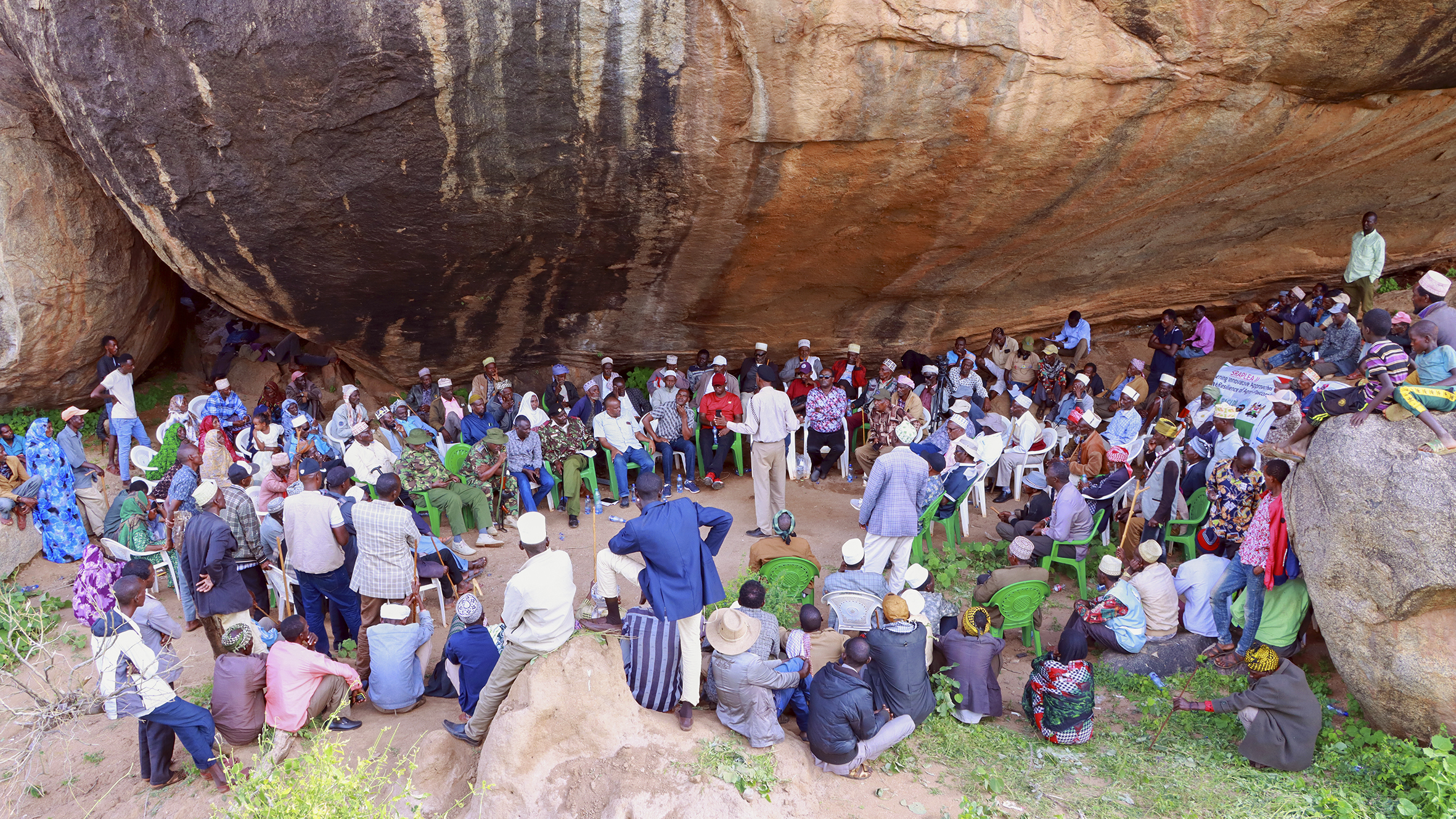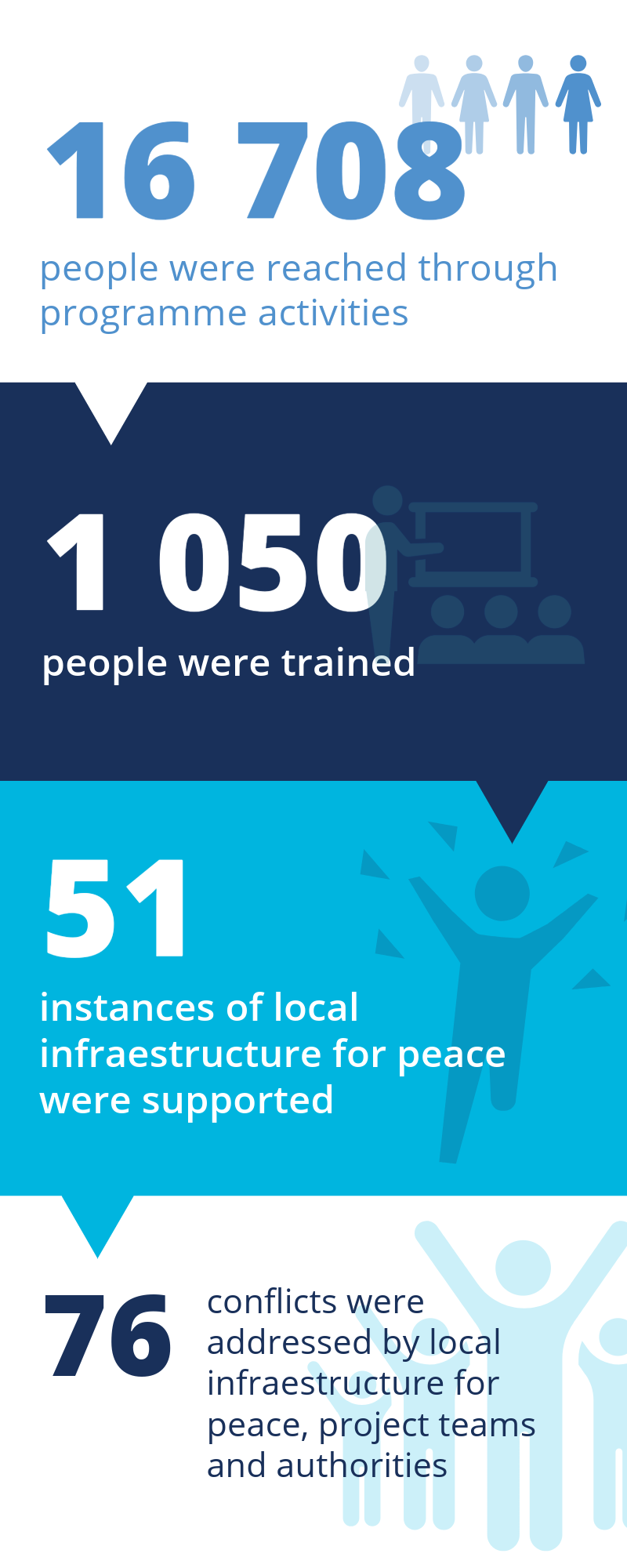Kenya
Programme vision
To build enduring local and national capacities for effectively managing intercommunity tension and conflict, leading to opportunities for sustainable community-level development and resilience.


Context
Northern Kenya grapples with enduring social and economic inequalities. The region is further challenged by the impacts of climate change, escalating tensions over access to vital resources. In addition, Kenya’s north-eastern region has recently experienced increased terrorist attacks despite campaigns to address the menace of insecurity in the area.
Interpeace’s Kenya programme fosters ceasefire agreements between communities and strengthens local-level resilience by enabling community members to advance peace processes. Through its interventions, the programme has developed a context-specific approach to mediation and peacebuilding that includes establishing and strengthening local change networks that harness the transformative potential of local people and put them at the centre of conflict prevention and management efforts.
Institutionalisation of the alternative justice system in Mandera county
In Kenya, there is a growing recognition and implementation of alternative justice systems (AJS) to advance access to justice. In Mandera county, the implementation of an alternative justice system aligns with the region’s unique cultural fabric. Anchored in customary laws, notably Xeer, with support from Islamic principles, the AJS in Mandera county is championed by elders and religious leaders. This judiciary framework is geared towards resolving conflicts rooted in local norms. It plays a critical role, especially in the face of regional security challenges. While the AJS is effective in cultural contexts, complex cases may be referred to religious leaders for resolution. As a result, the number of disputes requiring court referral is significantly reduced. Seeking to strengthen the recognition and institutionalisation of the AJS, Interpeace and its partners, the National Cohesion and Integration Commission and the Network for Peace, Cohesion and Heritage, collaborated with the National Steering Committee for the Implementation of the Alternative Justice Policy (NaSCI-AJS) to equip local stakeholders with conflict sensitivity and transformation skills and develop an AJS county action plan to champion the role of the AJS in resolving conflicts in Mandera. This initiative establishes peacebuilding frameworks at the community level and nurtures existing structures through support and training. The training, facilitated by the NaSCI-AJS secretariat, was attended by county officials, the Ceasefire Monitoring Committee, members of the judiciary, elders, religious leaders, women, youth and representatives of various peace structures.